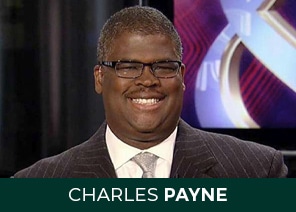It’s not a stereotype to say that women tend to think about security more than men do. Men do think about security, but studies show that women are born with a stronger survival instinct, and are more aware than men of vulnerabilities in their surroundings.

When it comes to the choice between investing for higher income in retirement or investing for bigger piles of money, women often prefer higher income that lasts. Piles of money can disappear through normal spending and bad markets. Add a few health care or dental costs not covered or long term care needs not covered by insurance, and the problem gets worse. Income that never goes away, to a woman, tends to be more appealing than taking big risks in the market.

Here is a quote from the opinion website ‘AthenaTalks’, see what you think:
Our desire for physical security has been covered extensively. Our desire for emotional security is greatly misunderstood by both men and women. We have a natural level of low-grade anxiety. For survival, perhaps this is meant to make us hyper alert to potential risks. It makes us pick up on clues that are not overt. It makes us notice patterns, behaviors, inconsistencies that can inform us of a potential risk that aren’t obvious to someone without this tendency.
In my 20+ years of guiding and counseling clients, I would have to agree with this assessment. Running out of money in retirement is a major concern among both men and women alike. But for women, it is even a bigger fear.

Is it purely emotional, or is there some sound logic behind it? Actually, there truly is irrefutable evidence and math to support it.
Because females tend to outlive their male counterparts, their chances of running out of funds, or experiencing a downgrade in lifestyle, are even greater than for men.
In fact, according to a study by Merrill Lynch and Age Wave, 42% of women think they’re at risk of depleting their nest eggs by the time they turn 80.
So, the question is: Are they worrying too much? Are they too emotional? Or do women more adroitly understand the many things that can go wrong, and want to make sure the worst doesn’t happen?

Women want to be certain when it comes to their survival—which includes financial survival. And, even though we live in the era of women’s equality, many affluent couples approach investments more traditionally. In other words, men often are in charge of investments, while women may pay the bills and manage the checkbook. It’s not true in every case, and I am not making a chauvinistic statement. I am merely reporting on an observation after visiting with several thousand couples in my career.

What I have found is that women are not interested in the muss, fuss, and anxiety of trying to beat the stock market. They have enough to worry about. Fidgeting over their money and micromanaging the daily, weekly, and monthly outcomes is almost meaningless to them. They trust their husbands because their husbands had a great salary, built the 401(k), and by doing so, built up a solid six figure or seven figure portfolio—in some cases, eight figures.

But once retirement arrives and the paycheck is no longer coming in, they tend to want to know how the money is invested. Many had never heard of an annuity before. They didn’t know there was an investment available that could guarantee a lifetime income without stress, but with solid guarantees behind it.
Once they do learn about annuities, and confirm that the insurance company does not keep their money when they die, they become keenly interested.

Think about it: Couples who spend $80,000 a year will spend $2.4 million dollars over 30 years. That is without inflation. If we add inflation into the mix it is conceivable that a couple spending $80,000 a year will need $5 million over the next thirty to forty years to come from somewhere.
Here’s something else to think about: Assisted living homes are populated by 80 percent women.

Women tend to outlive men, and sometimes by ten to fifteen years. More and more women are living into their 90s, and the age group of 100+ actually is growing rapidly. There are now 450,000 people over the age of 100. Guess which gender most of them are?
According to the aforementioned study, the typical retirement costs $738,000 dollars, for ONE person, spending only $46,000 a year. Many of my clients spend $80,000 to $140,000 a year. Yes, social security will provide part of that income. But we all know that we cannot live on social security income in the lifestyle we have become used to. And at death, one spouse’s social security goes away.
If the markets are not kind to a couple, a million dollars can wind down to $200,000 or $300,000 by the time the older spouse is 85. It happens fairly often. The study shows that only 9% of U.S. women have $300,000 or more saved up –or are left with that number— after their husband passes.
A woman who becomes a widow at age 75 AND is left with $300,000 may need to make that money last for twenty years or so. She has several problems: how will she manage the lump sum? Will the kids ask her for money? What if she has medical issues not covered by insurance or she needs long term care assisted living?
The lifetime guaranteed income that can come from a carefully selected Next Generation annuity can go a long way to making a woman feel more secure and comfortable in retirement.

Steve Jurich is an Accredited Investment Fiduciary® and Kiplinger Contributor He heads IQ Wealth Management in Scottsdale, a registered investment adviser.











